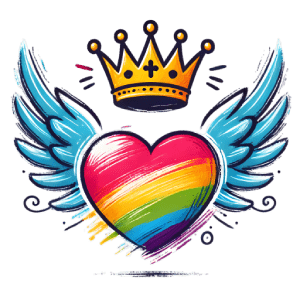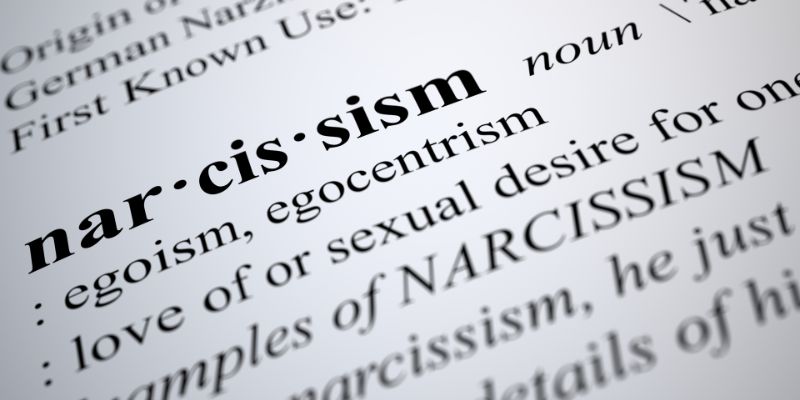Most people enter relationships with hope, trust, and genuine intentions. But when that relationship involves a narcissist, the experience can be profoundly different and often deeply damaging. How dating a narcissist changes you is something many people only fully understand once they’ve lived through it.
For adults this topic can hit especially hard. After years of experience, you may think you’ve learned to recognize unhealthy dynamics yet narcissistic relationships are uniquely deceptive. They often start with charm, attention, and admiration, but end with self-doubt, anxiety, and emotional exhaustion.
Let’s explore the psychology behind narcissism, how it affects your sense of self, and how to heal from it using the right kind of environment and tools, like our dating app, which focuses on healthy connection, shared values, and emotional compatibility.
1. Understanding Narcissism: What the Science Says
Psychologists define narcissism as a personality pattern characterized by grandiosity, lack of empathy, and a need for excessive admiration. According to research from the American Psychological Association, individuals with narcissistic traits often use relationships as sources of validation, not mutual connection.
In the early stages, this can feel intoxicating. The narcissist mirrors your values, your humor, your goals creating the illusion of a “perfect match.” But this mirroring isn’t connection; it’s manipulation. Over time, it fades, and the real personality emerges: critical, dismissive, controlling, or emotionally unavailable.
That’s when dating a narcissist changes you because their behavior starts to reshape the way you see yourself.
2. How Dating a Narcissist Changes You Emotionally
The emotional impact is often gradual but deep. Psychologists call it emotional conditioning. The narcissist alternates between affection and withdrawal, praise and criticism, creating what’s known as an intermittent reinforcement cycle.
This cycle can cause:
Low self-esteem – You begin to question your worth and decisions.
Anxiety and hypervigilance – You start anticipating emotional shifts to avoid conflict.
Self-blame – You internalize the relationship’s failure as your fault.
Isolation – You distance yourself from friends or family to maintain peace.
Even after the relationship ends, these effects can linger, making future dating feel overwhelming or unsafe. That’s why healing in a healthy, supportive space is so important and why our app was designed to foster emotional safety and mutual respect, not manipulation or pressure.
3. How Our Platform Helps You Heal and Rebuild
After leaving a toxic relationship, jumping back into dating can feel daunting. But not all dating environments are the same.
Our platform was built specifically for people who want real connection based on authenticity and respect. We use a smart matching system that focuses on your interests, lifestyle, and preferences to suggest compatible members not just quick matches. You can browse profiles, see who’s online, and use filters to find people in the communities that align with your pace, your energy, and your goals.
We also offer an extensive range of dating communities, ensuring everyone can find a space that feels right whether you’re looking for shared interests, similar values, or a completely new start. Communities like Mature & Confident, Over 50 Connections, Christian Values, Senior Dating, Professionals & Entrepreneurs, and Spiritual & Mindful Wellness Lifestyles give you room to meet people who value empathy, growth, and emotional intelligence the complete opposite of what you experienced with a narcissist.
That’s how real healing begins.
4. How Dating a Narcissist Changes Your Brain and Behavior
Neuroscience shows that emotionally abusive relationships can alter brain function. According to research published in Frontiers in Psychology, prolonged exposure to narcissistic behavior can increase stress hormone levels (like cortisol), impacting memory, decision-making, and emotional regulation, essentially, your brain adapts to chaos. You become hyper-alert, cautious, and sometimes even addicted to the emotional highs and lows of the relationship.
But the good news? The brain is plastic meaning it can heal. Positive experiences, supportive relationships, and environments built on trust can help rewire these patterns.
That’s why our app emphasizes compatibility over appearance, values over vanity, and communication over performance. You’re encouraged to connect with people who appreciate honesty and kindness helping your mind rebuild trust in relationships that feel safe.
5. The Psychological Aftermath: Trust and Fear
After dating a narcissist, trust becomes complicated. You might fear getting hurt again or doubt your ability to recognize red flags. These reactions are normal they’re part of your mind’s protective system.
However, staying in that guarded space forever can keep you from forming healthy connections. That’s where structure and clarity help.
On our app, you can define your relationship goals upfront from casual dating to long-term partnership. This clarity reduces uncertainty, helping you feel grounded and in control again. You know what others are looking for too, which minimizes emotional risk and confusion.
This kind of transparency is essential when you’re rebuilding confidence after manipulation.
6. How Dating Apps Can Be Part of Recovery
You might assume that dating apps are too superficial to support emotional healing but when designed thoughtfully, they can do the opposite. Our platform encourages slow, intentional dating. You can explore communities at your own pace, talk with like-minded people, and reconnect with the idea that relationships can be positive and respectful.
You’re not starting over from scratch you’re starting over stronger, with self-awareness and boundaries that come from experience. And you’re doing it in a space that celebrates who you are, not what someone else wants you to be.
7. Scientific Advice for Healing After Narcissistic Abuse
Psychologists and therapists recommend a few core steps for recovery after narcissistic relationships:
Rebuild your sense of self: Focus on your interests, goals, and strengths.
Reconnect socially: Spend time with people who uplift you, communities that make you feel understood.
Set strong boundaries: Learn to say no without guilt and to protect your peace.
Seek balance: Choose partners who offer consistency, not chaos.
Prioritize emotional health: Choose relationships that feel calm, respectful, and mutual.
Our app was designed with these principles in mind. Every community and feature supports meaningful connection, emotional safety, and healthy boundaries because dating should help you grow, not break you.
8. The Empowered You
In the end, how dating a narcissist changes you isn’t just about the pain it’s about the transformation that follows. You become more self-aware, stronger, and capable of recognizing red flags early. With the right support and the right environment, you can turn that experience into empowerment And our dating app provides that safe restart a place where empathy replaces manipulation, and mutual respect replaces control. You’ll meet people who share your values, interests, and pace, giving you the freedom to reconnect with love on your own terms.
Because healing doesn’t mean giving up on love it means choosing it differently.
9. Final Thoughts
So, how dating a narcissist changes you is complex it affects your emotions, confidence, and trust. But it also teaches resilience. When you step into a space built on compatibility, community, and compassion, you start to rediscover that love can be kind, balanced, and safe.
Our platform was created exactly for that to help adults over 40 find connection that feels natural and supportive, not draining or uncertain. Because you deserve more than just attention you deserve understanding, and that’s exactly what we offer.
Join your community today, and discover what healthy connection feels like again.

